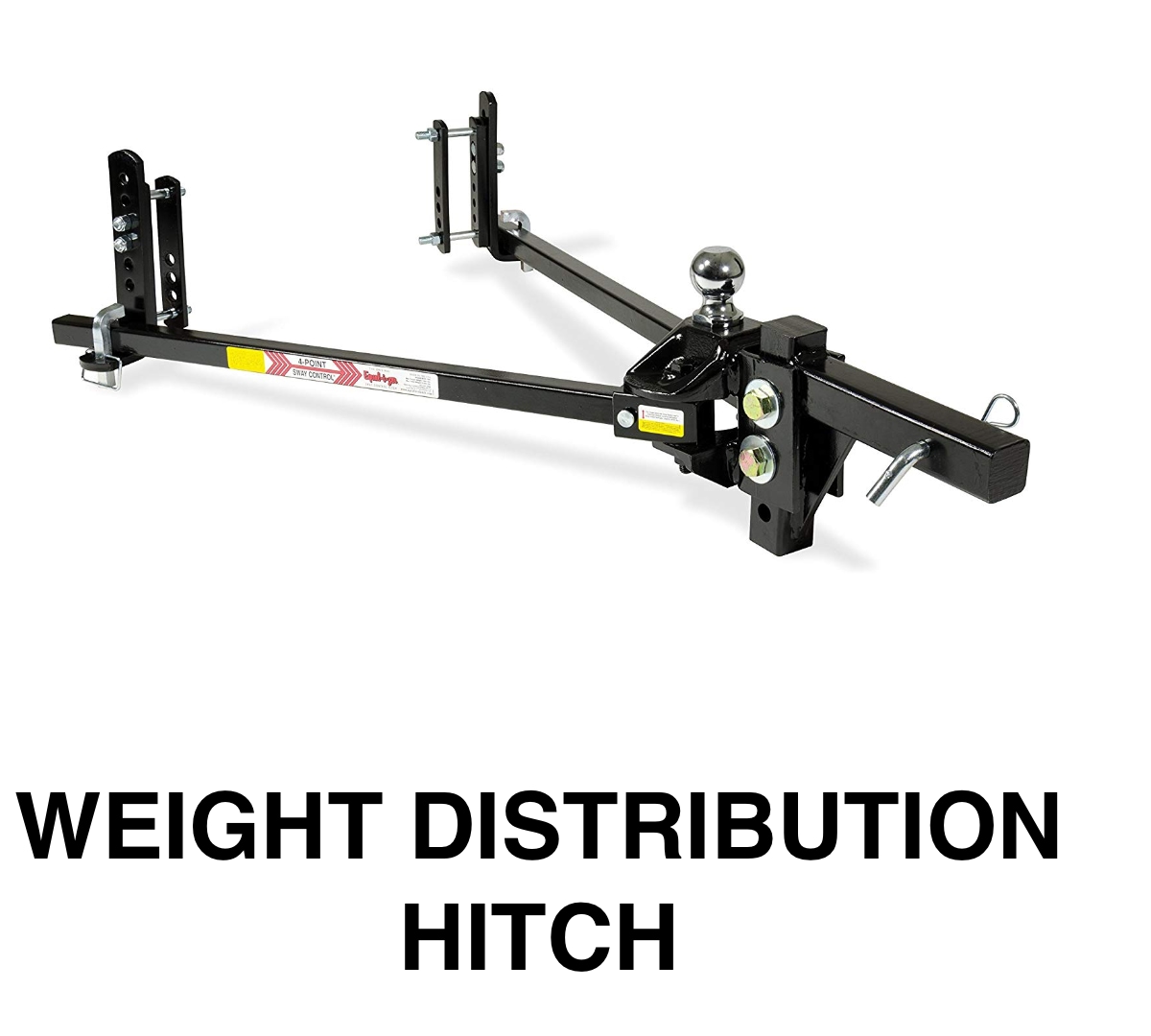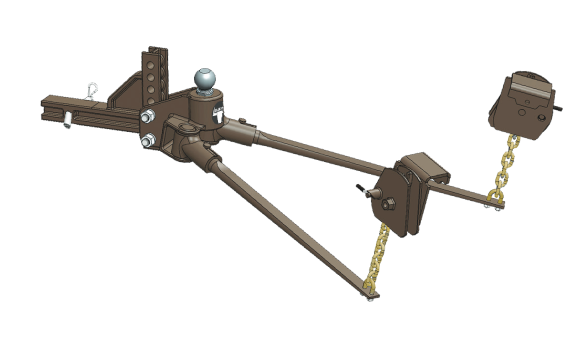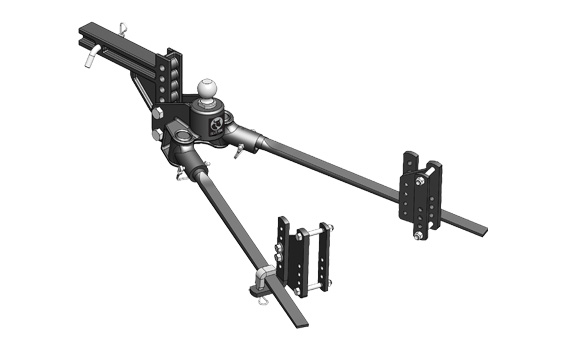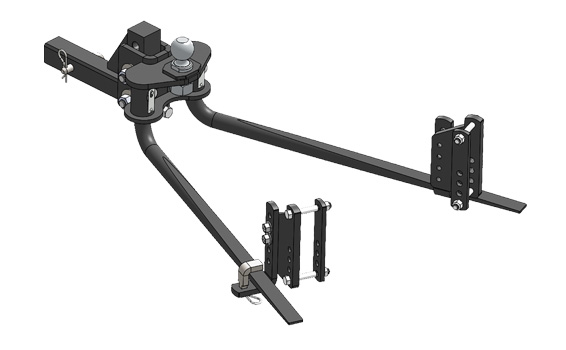|

SwayPro® Weight Distributing Hitch
Imagine this: you and your family have loaded your travel trailer and are heading to your vacation destination. On the road, you are about to pass an 18-wheeler. As the truck passes, your trailer begins to sway back and forth or fishtail. If you have ever experienced this, you know how scary it can be and that maintaining control can be quite difficult. Trailer sway is one of the main causes of accidents involving trailers and, for many people, it is the reason they put their trailers away for good after only a few trips. The good news is that, with the use of our hitch, the SwayPro, you can prevent sway in any type of weather.
 |  | TrackPro™
Features:
- Evenly distributes weight over axles of the tow vehicle and trailer
- Manages sway caused by bad roads, wind, and weather
- The caster in the hitch head constantly centers the trailer
- Spring bars augment the suspensions of the tow vehicle & trailer
- Rigid L-brackets provide additional points of sway-controlling friction
- Backup without disconnecting
- Powder-coated steel construction
Specifications:
- Tongue weights available: 600, 800, 1000 & 1300lbs
- Gross towing weight: 13K maximum
- 2” receiver, 2-1/2” receiver shank available
| |
SwayPro™
Features:
- Evenly distributes weight over axles of the tow vehicle and trailer
- Noise-free sway prevention never stops working, even in rain or snow
- The caster in the hitch head constantly centers the trailer
- Spring bars augment the suspensions of the tow vehicle & trailer
- Rotating latches with clamp-on brackets for quick and easy setup
- Backup without disconnecting
- Powder-coated steel construction
Specifications:
- Tongue weights available: 350, 550, 750,
1000, 1500 & 2000lbs - Gross Towing Weight 20K maximum
- 2” receiver, 2-1/2” receiver shank available
|
|

SwayPro™
Features:
- Evenly distributes weight over axles of the tow vehicle and trailer
- Noise-free sway prevention never stops working, even in rain or snow
- The caster in the hitch head constantly centers the trailer
- Spring bars augment the suspensions of the tow vehicle & trailer
- Rotating latches with clamp-on brackets for quick and easy setup
- Backup without disconnecting
- Powder-coated steel construction
Specifications:
- Tongue weights available: 350, 550, 750,
1000, 1500 & 2000lbs - Gross Towing Weight 20K maximum
- 2” receiver, 2-1/2” receiver shank available
|
 | TrackPro™
Features:
- Evenly distributes weight over axles of the tow vehicle and trailer
- Manages sway caused by bad roads, wind, and weather
- The caster in the hitch head constantly centers the trailer
- Spring bars augment the suspensions of the tow vehicle & trailer
- Rigid L-brackets provide additional points of sway-controlling friction
- Backup without disconnecting
- Powder-coated steel construction
Specifications:
- Tongue weights available: 600, 800, 1000 & 1300lbs
- Gross towing weight: 13K maximum
- 2” receiver, 2-1/2” receiver shank available
|
 | 2-Point™
Features:
- Evenly distributes weight over axles of the tow vehicle and trailer
- Steel-on-steel friction minimizes sway Round spring bars flex for a controlled ride
- L-Brackets keep spring bars in place Clamp-on brackets
- Powder-coated steel construction
Specifications:
- Tongue weights available: 600 (2 inch ball), 800, and 1200lbs (2-5/16” ball).
- Gross towing weight: 12K maximum
- 2” receiver
|
|